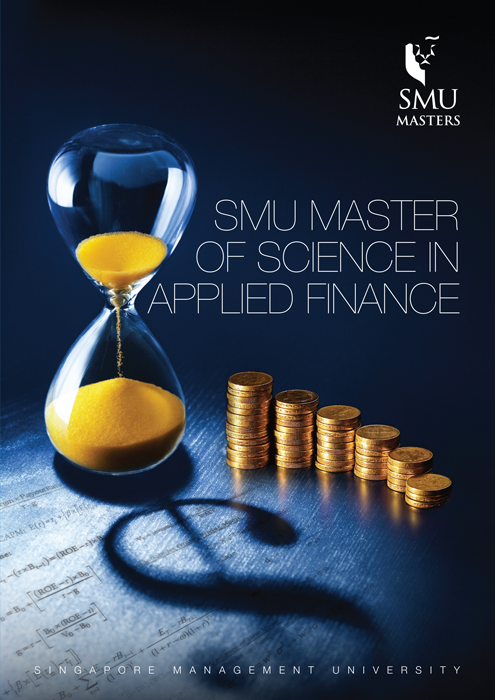
Consumer behaviour and how consumers bank has changed dramatically in recent years, primarily due to digital technology and the accelerated pace of digitalisation during a pandemic. Online banking, mobile banking, and other digital services have made it easier and more convenient for consumers to manage their finances.
However, besides pull factors such as convenience and around-the-clock accessibility, desirable behavioural change may also arise from push factors, as Associate Professor of Finance; Associate Dean (Undergraduate Programmes) Roger Loh discovered in his paper “Physical Frictions and Digital Banking Adoption”, co-authored with Hyun-Soo Choi from KAIST.
They find that the closure of one’s regular ATM (for example, due to renovations at the mall) serves as a small friction to physical banking access, and causes affected customers to increase their usage of the bank’s digital platform.
And as Covid-19 began to sweep the globe in 2020, consumers were forced to stay home during lockdowns. The pandemic has significantly impacted the banking industry, as individuals were less likely to visit physical banks or ATMs. Instead, they opted for online banking options, which allow them to conduct transactions from the safety and comfort of their own homes.
“The effect of the pandemic-induced lockdown on banking activities turned out to be an extreme version of our paper,” notes Professor Loh.
“In a strict pandemic lockdown, access to physical banking services is drastically reduced, and many would have no choice but to move to digital banking. And while lockdowns effectively forced us to embrace digital banking, businesses cannot count on lockdowns as a viable strategy for digitalisation.”
It only takes a nudge
Instead, the paper documents incidents that were more like a nudge than a major disruption: “Even an innocuous and slight reduction in physical access like an ATM closure in a high ATM-density city is sufficient to induce an economically significant substitution effect.”
In particular, the need to walk an additional 100m to locate an alternative ATM amounts to a small friction, one that is enough to induce consumers to switch to digital banking services.
“It’s interesting that when the ATM is reopened, customers do not reduce their digital banking activity. The convenience of the new banking method prevents the return to old habits,” shares Professor Loh.
“As such, it is likely that those who have turned more to digital banking would not switch back to physical banking even after the lockdowns.”
Choice architecture is a relatively new field of study that focuses on how the way choices are presented can impact decision-making. For example, given a choice between two options—one that is presented as being riskier than the other, you may be more likely to choose the safer option. Or, if you are given a choice between two similar products and one is labelled as being eco-friendly, you may be more likely to choose the latter.
The goal of choice architecture is to understand how these types of biases impact our decisions, and leverage this knowledge to design better ways of presenting choices.
“A pandemic-induced lockdown is an extreme sort of choice architecture,” states Professor Loh.
“In fact, you could say there was no choice provided by the lockdowns, really, you were forced to become digital. No one would choose such a method to force people to go digital. It was a side effect of the pandemic.”
Downside of digitalisation
It's no secret that the Covid-19 pandemic has caused major disruptions to the global economy. Businesses have been forced to close their doors, and consumers have been left struggling to access the goods and services they need.
However, in the midst of all this chaos, there has been one silver lining: the digitalisation of many businesses and consumer habits. For years, experts have been predicting the digital transformation of the economy, but the pandemic has accelerated this process in a way that no one could have anticipated.
Unfortunately, not everyone has access to the same technology or the education to wield digital tools. Digital disruption could also lead to certain echelons of the workforce lacking the necessary skills to survive in a digitally-based economy.
“Those who were unable to pick up the digital ropes at such short notice would suffer and the digital divide would widen,” explains Professor Loh.
“While increased digitalisation is generally a positive outcome, there are also side effects. For example, greater digitalisation can increase the reach of banking scammers. We need to rely on regulation and education to mitigate these side effects.”
Moreover, some habits steeped in culture and tradition may be difficult to digitalise. Certain practices are embedded in physical settings or require face-to-face interaction, making them difficult to replicate online. Traditions that are passed down through generations and involve intricate social interactions are also hard to replicate in a digital format.
“I think some norms take time to completely change,” says Professor Loh.
“Cash is still useful in many settings where the sight of physical notes convey the tangibility of the gift, such as at Chinese New Year gatherings, a wedding, or at a wake. I don’t think (Singapore) will go completely cashless as some countries have. Cash still has a role—it’s just that for cases where digital substitutes are more sensible, customers should be nudged (but not forced) to change.”
Speak to our Admissions Advisors
Lee Kong Chian School of Business
Postgraduate Admissions
Singapore Management University
Lee Kong Chian School of Business
Graduate Programmes Office, Level 4
50 Stamford Road, Singapore 178899
Tel: +65 6828 0882
Join us at the upcoming events
Singapore Management University
50 Stamford Road Singapore 178899
Singapore
